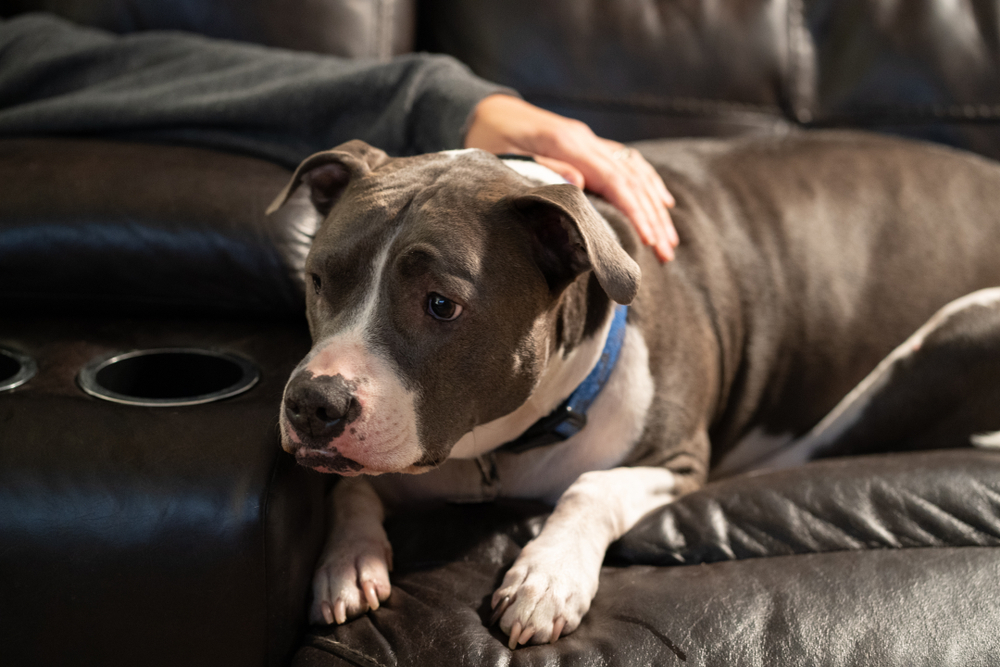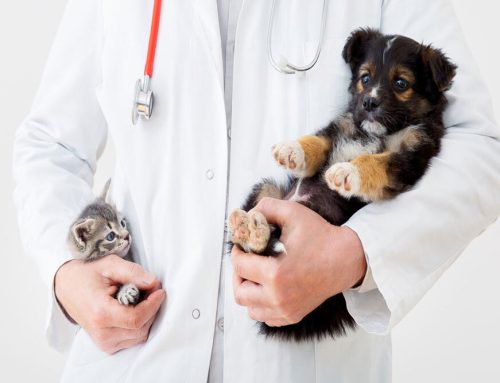The COVID-19 pandemic upended most people’s lives and shifted the way we think about mental health. Most people now recognize that physical and psychological health are linked and that addressing chronic stress is important. Like people, pets can suffer from anxiety that interferes with their well-being and can lead to behavior problems. The Providence Vet team shares how to recognize and address pet anxiety to support mental health in dogs and cats.
Recognizing pet anxiety
Anxiety is a feeling of discomfort or fear that arises from anticipating an event. Anxious pets may feel mild to severe stress, fear, or general unease that can occur in specific situations or become chronic. Temporary anxiety in response to a stressor is often expected, but repeated episodes of extreme reactions can decrease a pet’s quality of life and harm the human-animal bond.
Recognizing anxiety signs in your pet is the first step toward help. Here are some common signs:
- Vocalization
- Destructive behavior
- Appetite or energy changes
- Panting
- Trembling
- Drooling
- Excessive licking
- House-soiling
- Social withdrawal or clinginess
- Irritability or aggression
Pet anxiety types and causes
Understanding what causes pet anxiety is crucial to address it effectively. Most pets feel anxiety only in specific situations, which vary from pet to pet. Some pets feel anxiety in nearly all situations, which is called generalized anxiety. Anxiety may develop because of an underlying genetic predisposition, early life experiences, or lack of socialization.
Common anxiety-inducing situations in pets include:
- Separation — Some pets become stressed when separated from their owners, which often leads to anxiety and associated behaviors when they are alone.
- Noise — Thunderstorms, fireworks, and loud or high-pitched noises may cause sensitive pets disproportionate and prolonged anxiety.
- Changes — Moving to a new home, introducing a new pet, or rearranging furniture can make some pets, especially cats, anxious.
- Illness — Physical discomfort because of illness or cognitive decline from aging can contribute to anxiety.
- Veterinary visits — Many pets are anxious at the veterinary clinic, because they’ve had previous painful or stressful experiences.
- Strangers — Some pets become anxious around pets or people they don’t know. This may also have a territorial component.
Managing anxiety in pets
If you suspect your pet is suffering from anxiety, the following steps can help them feel more at ease:
- Create a safe space — Designate a quiet, comfortable area, such as a crate, where your pet can retreat from stressful situations.
- Maintain a consistent routine — Regular, predictable feeding, walking, and playtime schedules can reduce your pet’s anxiety.
- Provide exercise and mental stimulation — Regular physical activity and mental challenges, including puzzles and training sessions, help to address boredom and pent-up energy that may give way to anxiety.
- Try calming products — Calming sprays, diffusers, music, supplements, and wraps may help soothe an anxious pet.
- Desensitization and counterconditioning — Gradual exposure to an anxiety-inducing stimulus paired with a high-value reward can help reduce phobias and reactivity over time. A professional trainer can help you master this technique.
When to seek help for pet anxiety

Anxiety can signal an underlying medical issue or contribute to physical health problems in pets. If your pet’s anxiety is severe and does not respond to your efforts at home, you need to call our team for help. Our veterinarians can rule out a medical condition and recommend treatments, including anti-anxiety medications, or we may refer you to a veterinary behavior specialist for more intensive help. This is especially useful when problems, such as separation anxiety in dogs, require specialized training protocols as the primary treatment. Behavior specialists have a unique skill set and can tailor a treatment protocol to your pet’s needs and progress.
Most dogs and cats are anxious from time to time, but if anxiety is interfering with your pet’s well-being, our Providence Vet team can help. Contact us to schedule a physical examination to rule out underlying medical problems and to discuss treatment options, such as a behavior consultation, so we can gain control of your furry pal’s mental health.






Leave A Comment